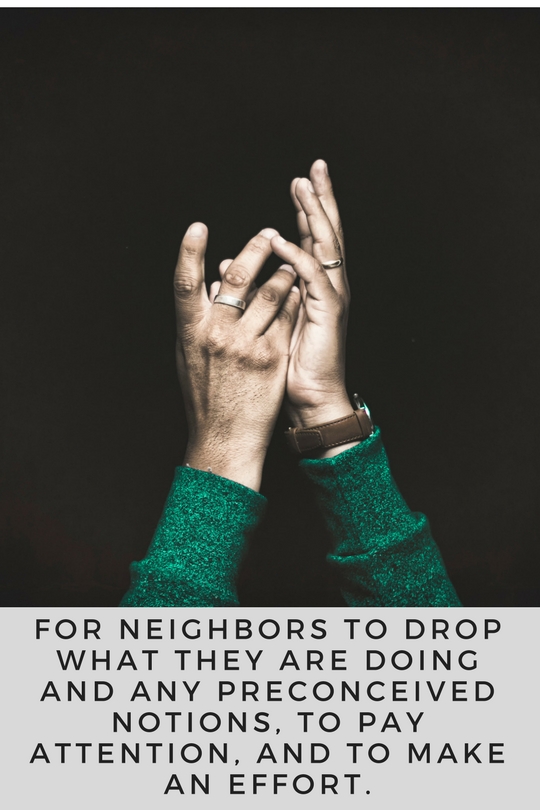By Emily Heisinger
The United States gives more money to charity than any other country in the world. In 2015 alone, American’s gave over 30 billion dollars to different organizations. In 2016, giving increased 4.1% and this country gave the largest amount ever recorded at 497.4 billion. Individuals gave 73% of this amount, meaning that most everyone is open to donating to a cause of some sort (Atlasofgiving.com).
If we looked at these numbers alone, we would like to say that America is a place where people hold a lot of wealth and are extremely generous with it. One might think that the state of the people in this country would be generally positive because of the way American’s profusely give.
Off the paper, we know this isn’t always the case. In this country- we have a lot to be thankful for. Yet, we cannot ignore some things that should concern us. We argue- a lot, we find ourselves frustrated and displeased, and for the most part, this place is divided.
Henri Nouwen put it perfectly:
“There is so much separation and segregation: between black people and white people, between gay people and straight people, between young people and old people, between sick people and healthy people, between prisoners and free people, between Jews and Gentiles, Muslims and Christians, Protestants and Catholics, Greek Catholics and Latin Catholics”(Henri Nouwen society- “Crossing the Road for One Another”).
We have so many divisions, it takes a while to list them off. And yet, the very person you might be divided from lives right down the street. I have found myself thinking about this deep disconnect between our monetary generosity and our deep cultural divides.
In Luke 10:25-37, Jesus teaches through a parable about a good Samaritan. He tells of a man who is beaten, robbed, and left for dead. Then he describes three different reactions of men who pass by.
The first was a priest and he passed on by the man on the opposite side of the road. Second, a Levite man passes in the same way of the priest who came before him. Third, a Samaritan man sees the beaten traveller and takes pity on him, which leads him to bandage his wounds, carry him on his own donkey off the road, take him to shelter and continue to care for him. This third man leaves money with the innkeeper so the beaten man can stay even longer. And just as a small side note: let’s all remember that Jews and Samaritans did not get along, and that Samaritans were looked down upon.
Then Jesus asks this very profound question-
“Which of these three do you think was a neighbor to the man who fell into the hands of robbers?” (NIV).

They are instructed to do as the Samaritan man had done. Thus, we are instructed to do as the Samaritan had done. He did not avoid the man, or toss money at the man’s problems. He took steps towards a stranger, cared for and soothed the man’s wounds, and brought him to safety.
So, even while as a whole society we give generously of our funds, that yes, we work hard to earn, let’s not neglect the needs of people that go beyond what money can buy. Let’s not forget that money cannot renew broken relationships, solve differences between cultures, or rehabilitate traumatic experiences. Money doesn’t do that- people do that.
There is a need for a human to care for another human in our society. For neighbors to drop what they are doing and any preconceived notions, to pay attention, and to make an effort. Maybe, just maybe, we can bridge the gap between our desire to be generous and the divisions we see every day.

Leave A Comment